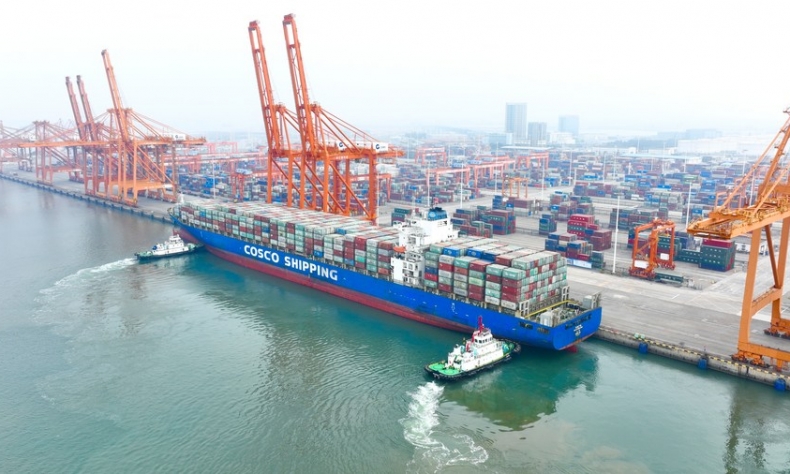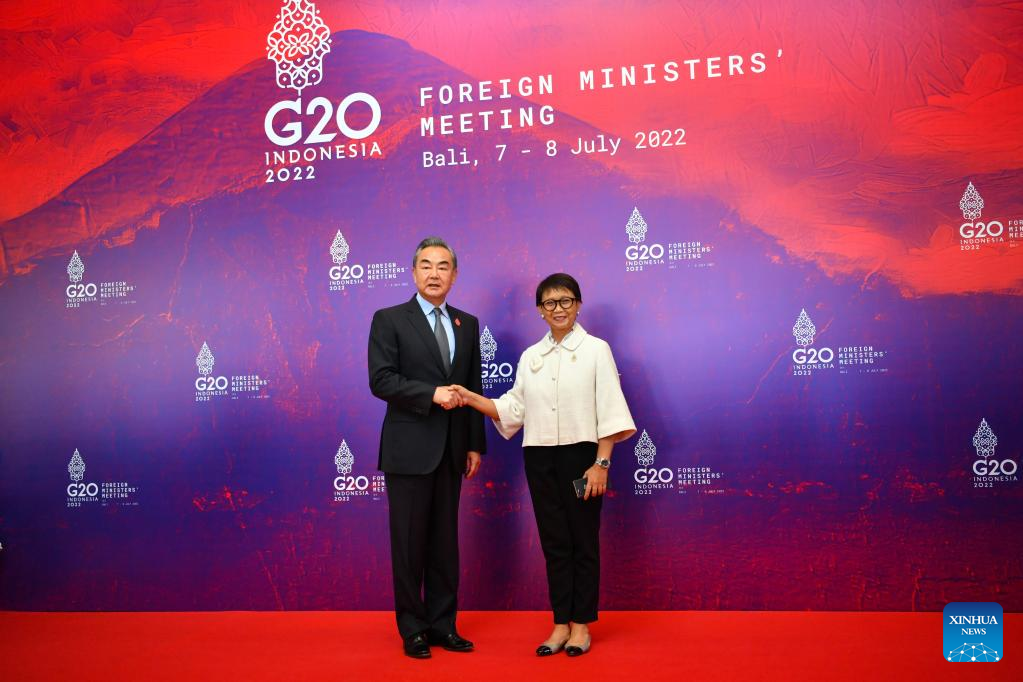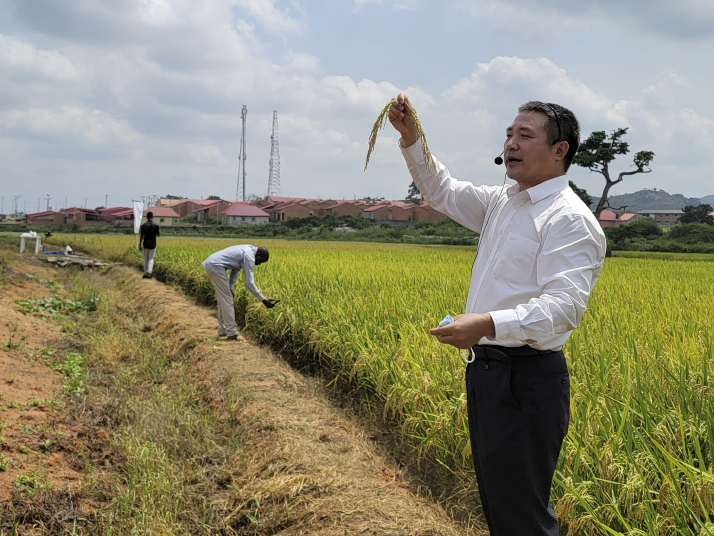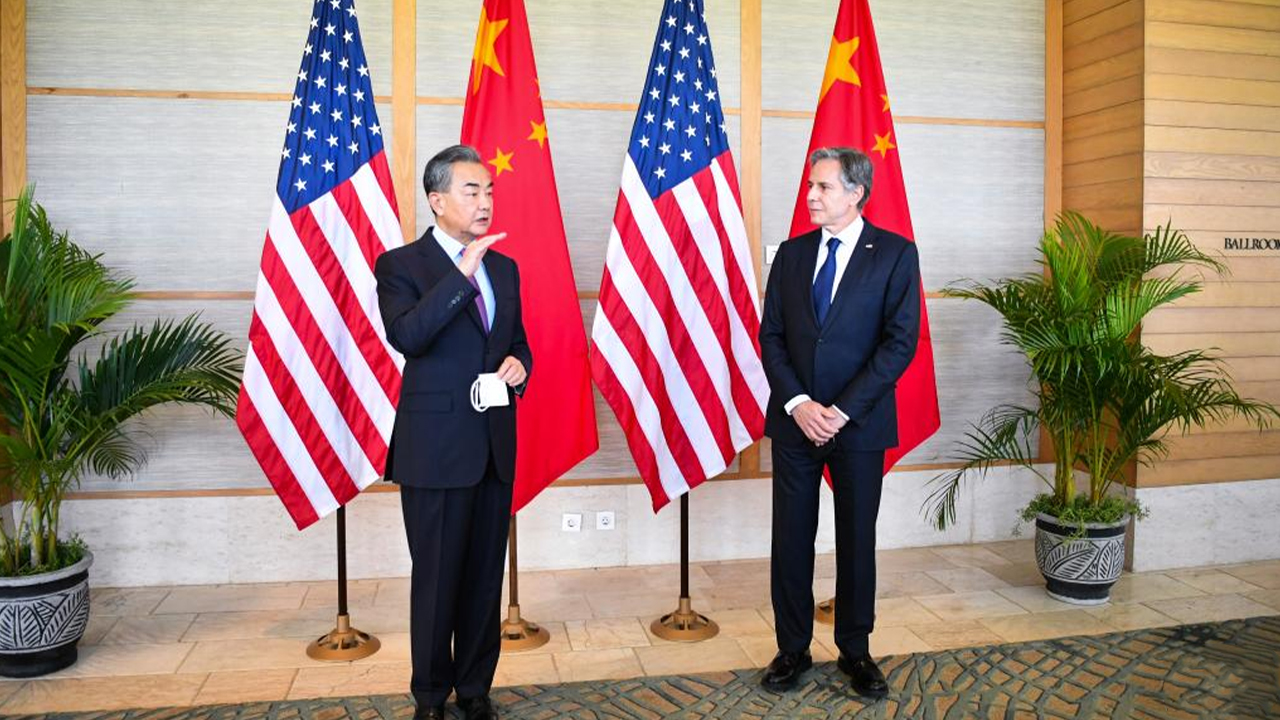True Multilateralism Will Boost Global Recovery

The G20 today shoulders important responsibilities in leading global anti-pandemic efforts, improving global economic governance and promoting the steady recovery of the world economy.
The Group of 20 (G20) is the premier forum for international economic cooperation established in September 1999. At the height of the international financial crisis, the G20 acted in a spirit of unity and partnership, pulled the world economy back from the edge and pushed it onto the track of stability and recovery. Many experts believe that closer partnerships and joint actions by G20 members will boost confidence in, foster driving forces for and intensify cooperation on global economic growth, contributing to shared prosperity and the world’s overall wellbeing.
Today, 23 years on, the world is ushering in a new phase of instability and transformation. With the combined impacts of these changes and the COVID-19 pandemic both unseen in a century and eroding decades of gains in global development, the world economy still faces strong headwinds on its path toward recovery. Economic globalization is suffering setbacks, protectionism and inward-looking trends are on the rise, and the multinational trading regime is under pressure. The implementation of the UN’s 2030 Agenda for Sustainable Development is encountering difficulties, global development is faced with countercurrents, the North-South gap keeps widening, and crises are emerging in food and energy security. The world economic recovery is fraught with rising instability and uncertainties, with each country’s call for international fairness and justice becoming stronger and people’s desire for development cooperation becoming more urgent.
The G20 today shoulders important responsibilities in leading global anti-pandemic efforts, improving global economic governance and promoting the steady recovery of the world economy. It is highly expected the G20 will practice true multilateralism, strengthen solidarity and cooperation, jointly deal with prominent challenges and contribute to robust, green and sound global development.
China’s contributions
China supports Indonesia, which holds the G20 presidency this year, in advancing cooperation in various sectors according to the established agenda surrounding the theme, Recover Together, Recover Stronger.

State Councilor and Foreign Minister Wang Yi attended the G20 Foreign Ministers’ Meeting in Bali on July 8, chaired by Indonesian Foreign Minister Retno Marsudi and attended by foreign ministers of member states and guest states of the G20, UN Secretary General António Guterres and responsible officials of other international organizations. This year’s meeting consisted of two sessions: a first session on “strengthening multilateralism” and a second one on “addressing food and energy security.”
China holds that G20 countries should be partners of mutual respect and equal consultation, of peaceful coexistence and win-win cooperation and of openness, inclusiveness and connectivity. It is imperative for the G20 to revisit its original purpose of solidarity and cooperation and work as partners for the sake of true multilateralism.
China believes international affairs should be managed by all countries through consultation and international rules should be jointly set and observed by all. Only by attaching importance to the security of others and maintaining everyone’s security can a country truly realize its own security. To place one’s own security above the security of others and intensify military blocs will only divide the international community and make oneself less secure. China stresses that G20 countries should be partners for openness, inclusiveness, and connectivity. Competition between countries should be fair and should not be vicious or even malicious.
China has been contributing to safeguarding global food security. During this year’s G20 Foreign Ministers’ Meeting, China put forward a cooperation initiative on global food security. Its main ideas include: supporting the UN in playing a key role in coordination; not imposing export restrictions on humanitarian food purchases by the World Food Program; offering convenience to the smooth entry of agricultural products and inputs from Russia, Ukraine and Belarus into the international market; major food-producing and net export countries should release their own export potential and ease the market’s tight food supply; the emergency measures taken by countries for food trade should be short-term, transparent, targeted and appropriate, and conform to the rules of the World Trade Organization; supporting the Consultative Group on International Agricultural Research and the cooperation on agricultural science and technology innovation among countries; reducing food loss and waste; helping developing countries enhance their capacities for food production, storage and loss reduction in terms of capital, technology and market.

China-U.S. relations
China-U.S. relations are still not out of the difficulties caused by the previous U.S. administration, and even face mounting challenges.
For the relationship, its historical narrative has been distorted, its current development is being hijacked by “political correctness,” and it faces the risk of being further led astray. This is fundamentally caused by the American misperception of China, which resulted in a China policy deviating from the right track. The self-contradictions and say-do gap in the U.S. policy toward China reflect a serious miscalibration of its views on the world, on China, on China-U.S. relations, and on interests and competition. If this type of threat inflation continues unchecked, the U.S.’ China policy will only lead to a dead end.
On July 9, Wang held talks with U.S. Secretary of State Antony Blinken in Bali following the conclusion of the G20 Foreign Ministers’ Meeting. Their discussion saw comprehensive, in-depth and candid communication on China-U.S. relations and international and regional issues of mutual interest.
Wang pointed out that the fundamental approach to steering the relationship out of difficulties is to implement the common understandings reached by both countries’ presidents. China has all along acted on the three principles put forward by President Xi Jinping in developing China-U.S. relations: mutual respect, peaceful coexistence and win-win cooperation. The U.S. side should uphold the commitments made by President Joe Biden through concrete actions.
Since the U.S. has promised that it does not seek to change China’s system, it should respect the Chinese people’s choice of socialism with Chinese characteristics, and should stop smearing and attacking China’s political system and domestic and foreign policies. Since the U.S. has promised not to seek a new cold war with China, it should abandon the Cold War mentality, refrain from zero-sum games, and stop forming exclusive groupings.

Since the U.S. has promised not to support “Taiwan independence,” it should stop distorting the one-China principle, cease the “salami slicing” on the Taiwan question, and refrain from playing the “Taiwan card” to obstruct China’s peaceful reunification. As the U.S. has promised not to seek conflict with China, it should respect China’s sovereignty and territorial integrity, stop interfering in China’s internal affairs or trying to undermine China’s legitimate interests under the pretext of human rights or democracy. The U.S. should also remove the additional tariffs imposed on China as quickly as possible and halt the unilateral sanctions on Chinese businesses.
The three Sino-U.S. joint communiqués—the 1972 Shanghai Communiqué, the 1979 communiqué on the establishment of diplomatic relations and the 1982 communiqué—are the most reliable guardrails for both countries. If the two sides uphold the commitments made in the three landmark documents, this would ensure the bilateral relations will not veer off track or spin out of control. Both sides should discuss the establishment of guidelines for their conduct in the spirit of mutual respect, peaceful coexistence, avoidance of confrontation and win-win cooperation. It is important to establish channels to implement the common understandings of the two presidents and better coordinate exchanges between various authorities in different fields. It is also necessary to properly manage tensions and disagreements and work to resolve pronounced issues. China has put forth four lists to the U.S. side, i.e. the list of U.S. wrongdoings that must stop, the list of key individual cases that the U.S. must resolve, the list of acts in the 117th Congress of high concern to China, and the list of cooperation proposals in eight areas, which the Chinese side hopes will be taken seriously by the U.S. side.
Following their meeting, both sides agreed the dialogue was substantive and constructive and helped the two sides increase mutual understanding, reduce misunderstandings and miscalculations, and accumulate conditions for future high-level interactions. They reached an agreement on working for more outcomes of the China-U.S. joint working group consultation in a reciprocal manner and agreed to create better conditions for their diplomatic and consular personnel to resume exchanges and consultation on people-to-people and cultural matters and step up cooperation on climate change and public health. The Chinese side put forward proposals for positive interactions between China and the U.S. in the Asia-Pacific region. The two sides had in-depth exchange of views on Ukraine, the Korean Peninsula and other issues.
The Ukraine issue
The Russia-Ukraine conflict cast a shadow over this year’s G20 Foreign Ministers’ Meeting. On the margins of the meeting, Wang met with his counterparts in Bali, including top diplomats from Russia, Indonesia, India, the Republic of Korea, Singapore, Saudi Arabia, Argentina, Germany, France, the Netherlands, Spain, the U.S., Canada and Australia as well as the high representative of the EU for foreign affairs and security policy. During these meetings, China further expounded its position on the current situation in Ukraine.

All the efforts China has exerted so far can be attributed to promoting peace talks. China will maintain an objective and impartial position and play a constructive role. The country believes all parties should seriously reflect on the root causes of the conflict and properly address the reasonable concerns of all parties involved.
China opposes exploiting the situation to incite Cold War mentality, hype bloc confrontation, and create a new cold war. It opposes the undermining of its sovereignty and territorial integrity by applying double standards. Certain countries now emphasize the principle of sovereignty on the Ukraine issue, but keep challenging China’s sovereignty and the one-China principle on the Taiwan question, even deliberately creating tension in the Taiwan Straits. This demonstrates a blatant double standard.
The Chinese side rejects any attempt to draw parallels between the Ukraine crisis and the Taiwan question, and will firmly defend its core interests. China opposes undermining other countries’ legitimate rights to development. All parties should jointly strive to build an open, fair and non-discriminatory environment for international cooperation.
The international situation is volatile. China stands ready to work with all sides to implement the Global Development Initiative and the Global Security Initiative proposed by President Xi, to overcome differences through solidarity, replace confrontation with cooperation, translate the spirit of multilateralism into concrete actions for safeguarding world peace and promoting common development, and jointly build a world of peace, development and win-win cooperation.
 Facebook
Facebook
 Twitter
Twitter
 Linkedin
Linkedin
 Google +
Google +










